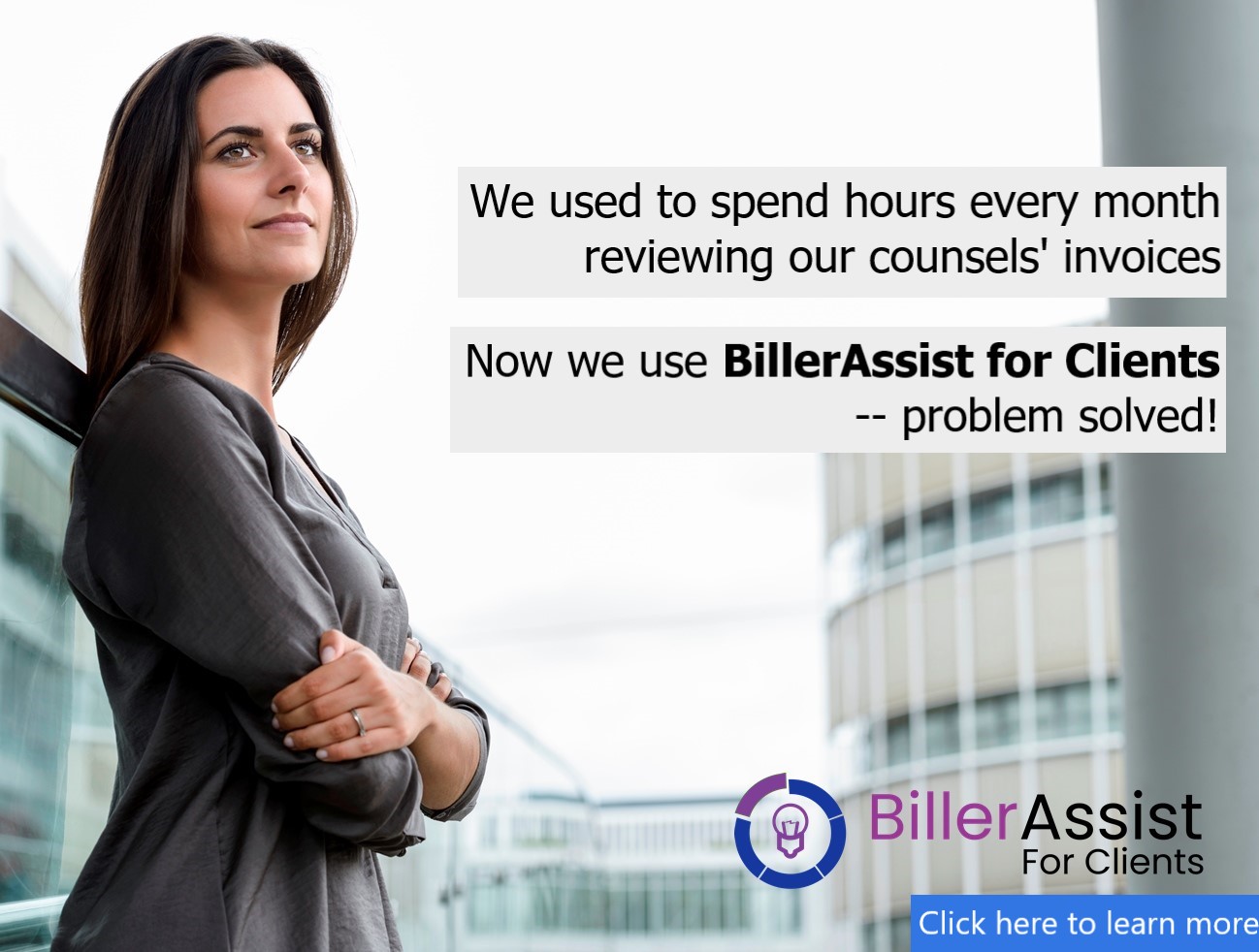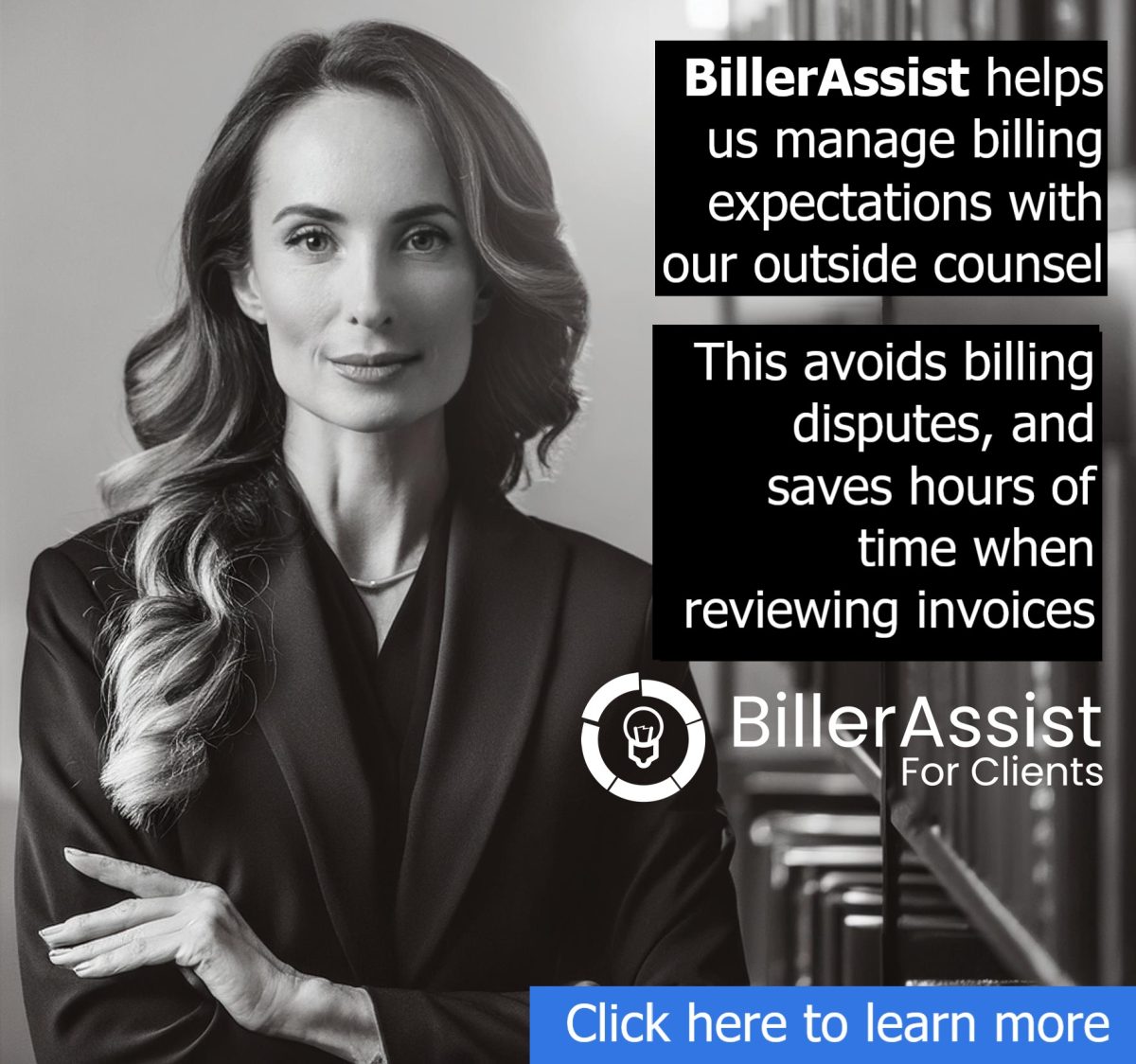Achieve Transparency With Your Outside Counsel Billing
With the myriad responsibilities of a company’s legal department, in-house counsel are well served to find the best ways to increase efficiency and productivity.
One of the most prominent ways to do so is to use data-driven solutions to improve transparency with regard to outside counsel billing and expenditures.
Achieving this transparency, together with consistently reasonable outside counsel billing, is easier than you might think.
Automated Standardization of Billing Data
By using billing automation, in-house counsel gain the advantage of receiving standardized data from their partner law firms. This means in-house legal departments can more easily compare billing data from one firm to another, ensuring that they are actually comparing apples to apples.
For example, advances in technology are moving toward automated UTBMS and LEDES codes to fully standardize the coding of billing entries. This means that coded billing data is much easier and more reliable to use.
In addition, a recent Thomson Reuters report entitled Latest Trends and Best Practices in Managing Outside Counsel details how automation reduces billing disagreements by standardizing the determination of exactly where invoices are out of compliance.
The Thompson Reuters report also indicates that automated legal billing significantly expedites legal billing review process. This shorter review periods in turn translates into saving money and optimizing productivity.
The standardized billing data also allows for more reliable benchmarking. Lawyers at one firm can be compared with those of another, or within the same firm. Lawyers and firms that are more efficient can be easily and accurately identified and rewarded.
As the above examples demonstrate, AI and machine learning technologies are crucial to providing the capacity to drastically improve efficiency and transparency in dealing with outside counsel invoices.
Outside Counsel Can Help
As detailed in the recent American Bar Association article entitled Working Effectively with Outside Counsel Checklist, the ABA recommends a checklist to consider when analyzing outside counsel billing.
But this responsibility does not fall solely on in-house legal departments. For example, the Illinois State Bar Association recently reminded attorneys of their obligation to conduct reasonable client billing.
Indeed, the ABA Model Rules for attorney ethics provides eight factors for outside counsel to consider in ensuring their bills are reasonable:
(1) the time and labor required, the novelty and difficulty of the questions involved, and the skill requisite to perform the legal service properly;
(2) the likelihood, if apparent to the client, that the acceptance of the particular employment will preclude other employment by the lawyer;
(3) the fee customarily charged in the locality for similar legal services;
(4) the amount involved and the results obtained;
(5) the time limitations imposed by the client or by the circumstances;
(6) the nature and length of the professional relationship with the client;
(7) the experience, reputation, and ability of the lawyer or lawyers performing the services; and
(8) whether the fee is fixed or contingent.
These factors are often used by courts in determining whether attorney's fees are reasonable, and are capable of mathematical expression.
Data-Driven Solutions
The opportunity to optimize transparency with your outside counsel billing already exists at EffortlessLegal.
- Automated billing rules compliance
- Automated flags to notify outside counsel in real-time whether they are charging too much for a particular task, or for an entire matter
- Automated LEDES/UTBMS coding for easy standardization, and benchmarking from one firm to another
This means that your outside counsel can easily self-correct and streamline their efforts as they work, and before they send you a non-compliant bill.
This also means that your legal department receives reasonable and standardized bills from all outside firms, allowing greater ease of reporting and complete transparency from firm to firm.
Moreover, by using the BillerAssist for Clients apps, your outside counsel will receive advance notice — on a line by line basis – of all billing issues, thereby significantly reducing time spent resolving billing disputes.
Conclusion
Billing automation is advancing the way legal departments and law firms operate with innovative solutions using real-time information to boost efficiency.
Achieving transparency in billing for both legal departments and law firms alike can now — in fact — be effortless.




